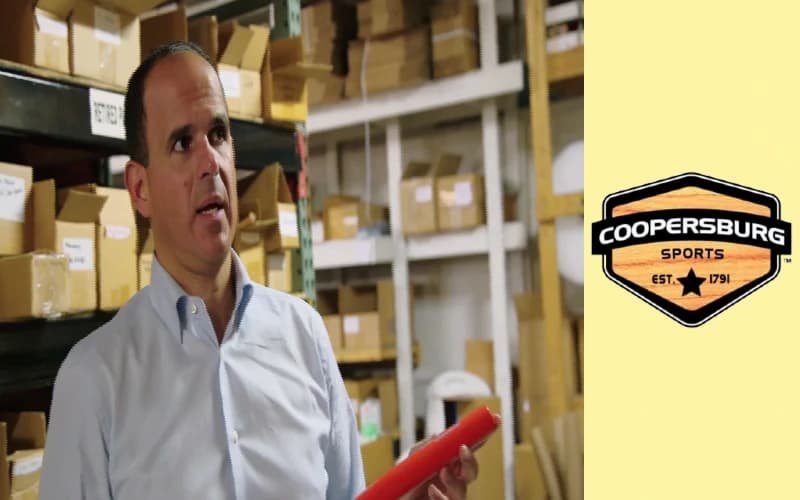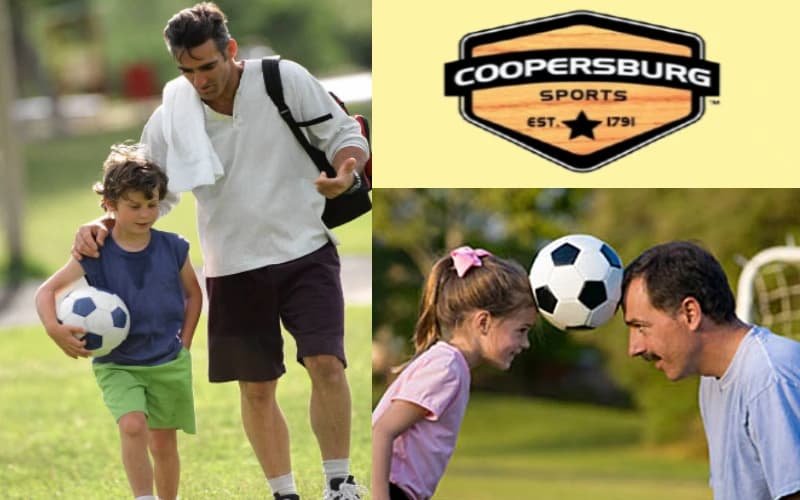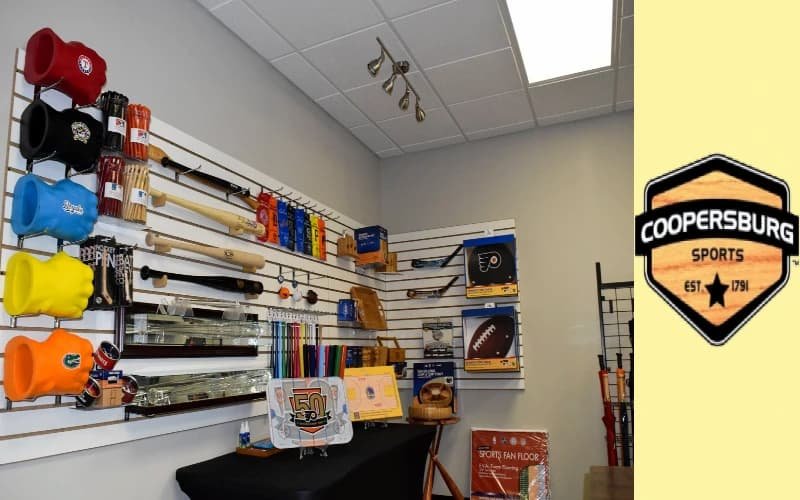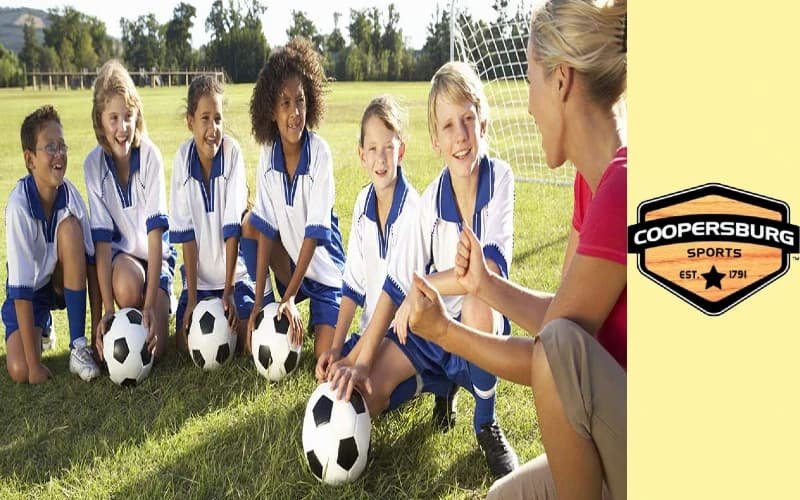Table of Contents
Before The Profit, Coopersburg Sports
Coopersburg Sports is a sports novelty firm based in Coopersburg, Pennsylvania, in the heart of Amish country. The firm began as a tool handle manufacturer in 1791, but when power tools grew more common, it was compelled to change. Scott Pino took over the business from his father in 1991 and started selling small baseball bats made by Mennonites in the region. Coopersburg Sports started printing the club logos on tiny bats and selling them at stadiums around the country after Scott obtained the rights to all of the Major League Baseball teams’ logos. Coopersburg Sports was a tremendously lucrative business that brought in $4 million in revenue at its height. However, since rival Louisville Slugger joined the market, the firm has suffered a significant setback, with revenues halving. Coopersburg Sports is in desperate need of assistance. Is it possible for Marcus to enhance its track record?
Coopersburg Sports Marcus Tours
Episode 14 Of Season 2 Of The Profit
The first thing Marcus noticed when he entered the building was the chaos and lack of organization, and the ventilation was so bad that Marcus had to cover his nose to avoid inhaling the chemical stink. Scott introduced himself to Marcus and briefed him about the company’s history before explaining how the economy and competition had harmed his firm. When Marcus enquired about Scott’s expenditures, he discovered that the profit margin was barely $.37. When asked about his losses, Scott projected that he would lose $12,000 that year, but Marcus pointed out that this was based only on supplies and did not include work or wasted time. Scott advised Marcus that they could save $.10 if the bats were painted somewhere else. Marcus calculated in his brain that a 10-cent save would equal $30,000 if 300,000 bats were sold each year, and they could save an extra $12,000 if waste was removed.
Marcus was taken to the printing area by Scott. Traditional HP printers were configured to print on the bats by the firm. Marcus could see that if they were utilized to print on other products, they had a lot of potentials.
Marcus then met Scott’s daughter, Jackie, who oversaw the Collegiate market. She was criticizing the fact that she couldn’t monitor her orders, and that they didn’t have enough boxes to send them since they didn’t have an inventory system. Because he was emotionally engaged in the tiny bats, she informed Marcus that her father was closed to fresh ideas.
Marcus inquired into Scott’s debt and discovered that the firm owed the bank $700,000. They had to spend about $40,000 in cash flow for payables since the firm was not profitable. Marcus cautioned that unless things changed at Coopersburg Sports, the company would collapse.
Marcus’s suspicions that the factory was managed inefficiently were confirmed during a visit with Scott’s son, Ben, who was the plant manager. The company needed to relocate to a better-flowing location, but Scott stated he couldn’t afford it. Marcus advised him that he couldn’t afford to stay put. Marcus demanded to review the financials when he met with Scott and his wife, Wendy. They were close to $1 million in debt due to the bank loan and payables. Marcus informed Scott that the show had been approached by his children. Scott had recovered his father’s firm years before, and now the kids were ready to do the same for their father. Scott had to relinquish control and let them participate.
Marcus Makes A Proposal

Marcus told Scott what needed to be done and what he was ready to contribute at that moment. He started by saying that the system was broken. They were in severe need of a new facility that would allow for improved workflow and monitoring and inventory systems. They’d also have to start working on items other than the small bat. Due to the fact that baseball is a seasonal sport, they usually lose money in the fourth quarter. Marcus made an offer of $630,000 in return for a 50% stake in the firm. Scott believed it was much too high, and that a figure of 30% would be more reasonable. Marcus said that he would be prepared to reduce his share but would not be willing to contribute more than $630,000. In addition, he’d have to earn a 3% royalty on every product sold. Scott consented, and the agreement was signed.
Marcus outlined how he planned to spend his money: $150,000 on debt repayment, $180,000 on past-due payables, $150,000 on the new facility, and $150,000 on working capital and product development. The Pinos would have to broaden their product range since they couldn’t continue to be only a bat firm without new inventory and accounting systems. They needed to work out license agreements with other leagues and build ties with merchants.
The Pino Family Is Getting Ready For Change

Marcus and the Pinos examined a possible new facility, and since the property had been unoccupied for two years, Marcus was able to negotiate nine months free rent on a six-year lease. The firm would be able to become successful in the new facility, but the next duty would be to push the family to invent new items.
Jackie had considered cashing in on the at-home tailgating fad and had some home design ideas. She noted that baseball isn’t very popular in college, so she thought it would be a good idea to pursue other sports leagues. Penn State had provided her a list of requirements, which included coasters and cutting boards in the form of footballs. Scott, on the other hand, was concerned that they were drifting too far away from their primary product. Marcus had an idea to develop a business model where Coopersburg would customize other firms’ items for a charge after Ben showed how the printer might operate on things other than bats.
Marcus traveled to Pittsburgh for a meeting with MLB after speaking with Scott about setting up financial systems. In the parks, he wanted to see the mini-bats. However, Marcus realized that when Scott said that the bat was in every big stadium, he was lying; the bats were only in roughly five or six stadiums. Scott seemed to be hustling Marcus.
Marcus then escorted Scott and Ben to the bat manufacturing factory. His goal was to demonstrate to Scott that more things could be made there. Ben got the notion after seeing what seemed to be a table leg that they could build children’s furniture, such as stools, and utilize their technology to print team logs on the pieces. Marcus saw this as a huge opportunity since the furnishings could be sold for a much higher retail price than the bats.
Scott later opened up in the parking lot and stated he felt like a failure. He had worked so hard to get his MLB licenses that he felt like giving up if he moved away from bats. Marcus told him that he wasn’t a failure, but that he should be open to new ideas.
The New Products Have Been Announced

Marcus traveled to Pennsylvania three weeks later to examine the family’s new prototypes. Jackie’s house tailgating cookware, a little bat rack for toothbrushes, and the aforementioned stools Marcus scheduled a meeting with Bass Pro Shops to market the new goods, but Scott’s presentation was met with disapproval. But then Jackie came in with some insight into the Bass client, positioning the home tailgating goods as ideal for the expanding female market. The customer was enthralled by what she saw, and when Ben said that the things could be customized, she was overjoyed, since branding was a major concern for them. Coopersburg Sports seemed to be on the verge of becoming a forward-thinking corporation.
Coopersburg Sports In The Afternoon

In December of 2014, Coopersburg Sports was featured on The Profit. Marcus had invested more money into the firm than the $630,000 that was part of the handshake contract, according to an update in May 2015. To cover payables, the new building lease, and the inventory system, he put in a total of $1.4 million. The firm was able to earn a profit thanks to the improved warehouse methods, and revenues grew to $3 million in a calendar year.
The NBA, NCAA, NHL, and NASCAR have all signed license deals with the corporation. Salt and pepper shakers, key chains, washroom utensils, ponchos, coat hooks, and coasters are among the items available on the website. Other things may be purchased at Walmart or on Amazon.
The Pinos is seeking a new investor since Marcus and Scott are no longer partners. Although the two had a falling out when Scott constantly begged Marcus for money, Scott owes Marcus a debt of gratitude for his assistance in turning the firm around. Scott recalled, “He rescued us.” He improved the company’s batting average significantly.
Royal Pitch is not linked with Coopersburg Sports, The Profit, or any of its subsidiaries, and the information presented in this article is only for educational purposes.
Visit the rest of the site for more articles.


One thought on “Coopersburg Sports Updates On Profits”